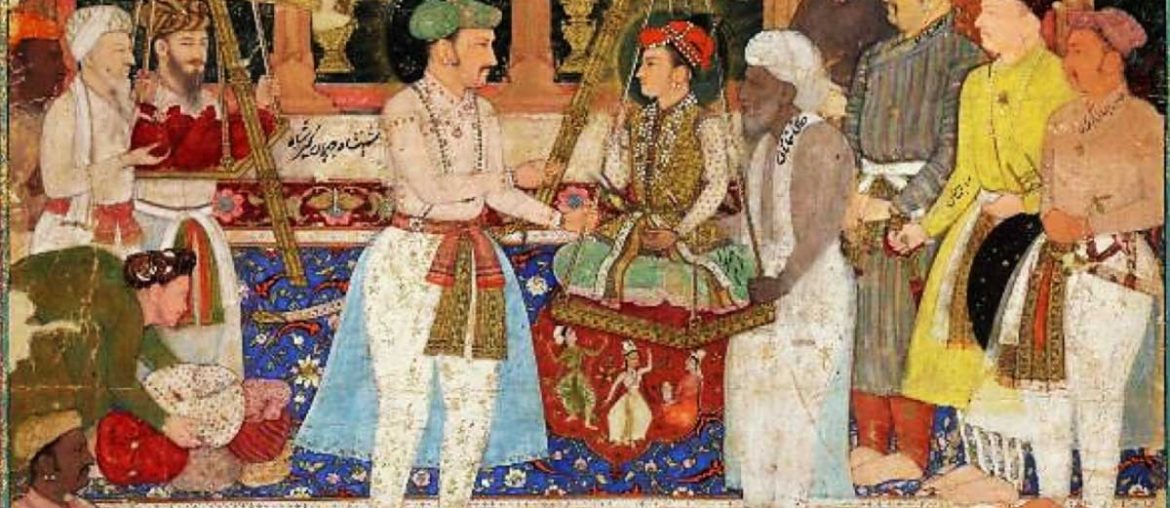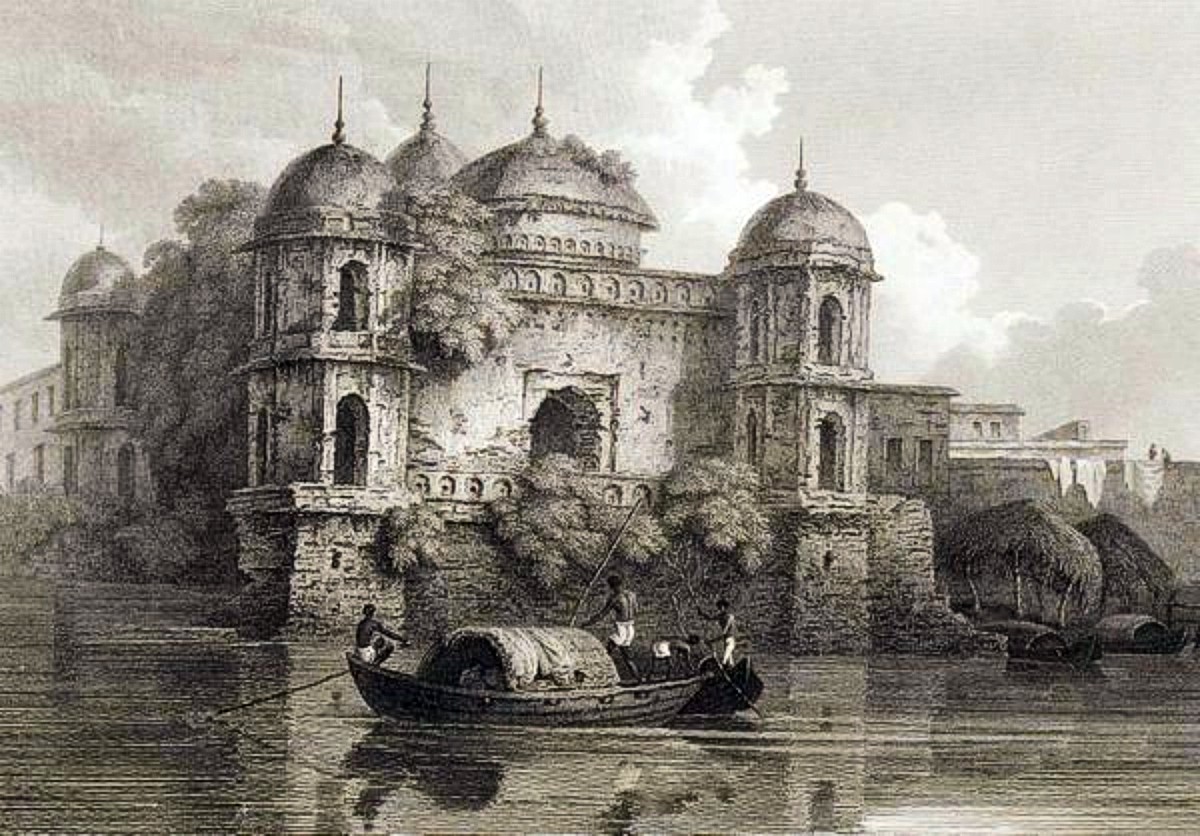PROPOSITION
How much was written in the first Bengali year? 1? 2? 5? 10? Presumably, the first Bengali Year was written as 991! But why so? We will find the answer to that question today. Inquest of uncovering the mystery, we will know about the condition of the then Bengal during the Mughal period. We will meet the Mughal Emperor Akbar as well as Fateullah Siraji from Persia in his meeting! Let’s get started.
THE MUGHAL EMPIRE AND BENGAL IN AKBAR’S TIME
Jalal-Ud-Din Muhammad Akbar was the third Mughal emperor after Zahir-Ud-din Muhammad Babur and Mirza Nasir-Ud-Din Baig Muhammad Khan Humayun. It was during his time that the Mughal Empire spread far and wide for the first time all over India. Occasionally when you imagine the map of undivided India, you are bound to get startled. On one side are the magnificent location of the Himalayas touching the skies, the tidal waters of the Indian Ocean in the south, all the beautiful mountains in the west, and the east, our beautiful forest (Janlā) of Bengal!
The word “forest (Janlā)” is used herein a literal sense rather than in a demeaning tone. The people of this place didn’t give up easily and couldn’t be hegemonized. Not sure if Babur knew about it or not, in 1537, when Babur’s son Humayun was elsewhere on an expedition, Sher Shah occupied the state of Bengal and established the Suri dynasty. He snatched the pride of Humayun by overruling him in the greater Bengal when Humayun was planning to rule Bengal. His strategist reorganization of the empire laid the foundations for Akbar.
The Bengal came into the hands of Mughals through Humayun’s son Akbar. Akbar was just like a triumphant conqueror of the entire world. Cruel, ruthless, tactical yet at the same time kind, generous, intelligent, and fortunate. Because there is no way to deny Akbar’s emergence in Bengal was a touch of fate.
WHY WAS THE BENGALI YEAR NEEDED?
During the reign of Emperor Akbar, Bengal was brought under control by the Mughals. Still, it was a challenge to keep it under complete domination. The fertility of the soil has made taxation or revenue of this place go higher. For centuries, no matter what, these ideas of rent or taxes have not changed. The biggest problem with the then Bengal was selecting a proper time of collecting this rent!
From the beginning of the Mughal period, the Arabic Hijri calendar was in vogue. They counted days as per the Hijri calendar. If compared to the present day, the court of Akbar scored the year in such a way to arrange a parliamentary “budget session” in the middle of the year. When everything was going well in the Mughal Empire, the Bengal arrived on the scene.
A problem arose with the calculation of the Hijri year for Bengal since it runs on the count of the lunar eclipse. Depending on the moon, these months advance 10-11 days per annum. But the farmer’s crop is dependent on the sun. Therefore, when it was time to collect the tax, it wasn’t the time for the peasants to harvest their crops. The harvesting season passed a couple of months ago, and the farmers didn’t have anything to offer as taxation.
The question may arise here: Can crops/rent not be stored for two or three months? The answer is no. The farmers of those times weren’t different to the present days. They used to toil incessantly to earn their food and were exploited limitlessly. They feed us with food while they suffer the most because of it! This situation has not changed in a few hundred years. They were always earning day in and day out and never had the idea of “savings.”
THE “GREAT IDEA” OF AKBAR THE GREAT
If there were any other rulers than Akbar, he would have said, “I do not want to understand anything, you are paying my rent, or you will give fines!” It seems normal if you read stories of other kings and their reigns. However, Akbar was called “Akbar the Great” due to his skilled administration and breaking the stereotypes. He understood that nature had no compulsion. Any human or superhuman entity cannot control nature. We have to obey nature, and that is why, for convenience, we have to introduce the Bengali Year.
According to Akbar’s instructions, his brother-in-law and astrologer, Amir Fateullah Siraji, invented a new, startling method of calculating the year. With the season in Bengal already underway, Amir Sahib further standardized it.
BUT WHY START FROM 991?
According to Amir Sahib’s account, when Akbar ascended the throne, he defeated Himu in the battle of Panipat II on 963 Hijri or 5th of November, 1556 AD, according to the English/Gregorian calendar. In conjunction with that, the year was calculated to be 963. That is, 963 is the baseline of the beginning of Bengali Year. But it should be kept in mind that Akbar has captured Bengal after a specific time. It has also taken some time to realize that there can be such a problem in collecting rent in Bengal. And he also began to reckon the difficulties of collecting the taxes in Bengal a little bit later on. The Bengali Year was initiated at the end of the 28th year and the beginning of the 29th year of Akbar’s reign. That is why we can assume that the first Bengali Year was 963+28= 991 Bangabdo (Bengali Year)!
THE HARVEST SEASON
The calendar, officially launched in the English/the Gregorian year of 1584 AD, was named “Tarikh-I-Ilahi”. The initiation of the Ilahi year is 1556 AD. And it was Hijri 963. With the launch of this calendar, farmers no longer had trouble paying taxes. Solar year calculations do not change the beginning date of the year, and the new year’s day was the time to pay their fees after the harvest. As a result, the “Tarikh-I-Ilahi” was introduced to the farmers as the “harvest season”. From that “harvest season,” the Bengali year is calculated to date. The name “Tarikh-I-Ilahi” didn’t sustain after Akbar’s reign, but it is now known as “Bangabdo” or the Bengali Year.
APPENDIX
There is some disagreement among scholars regarding the calculation of the Bengali Year from the time of Akbar. When the discussion regarding the birth of Bengali Year emerged, a point of contention between four rulers arose. They are the Tibetan King Srong Son, King Shashank of Gaur, Sultan Hussein Shah, and Mughal Emperor Akbar. Most scholars, however, upvote and argue for Emperor Akbar. Although there is disagreement over whether Emperor Akbar introduced the first Bengali year, there is no doubt that he made special reforms. He kept the Bengali Year in line with the Hijri year. So our discussion surrounds Akbar!





